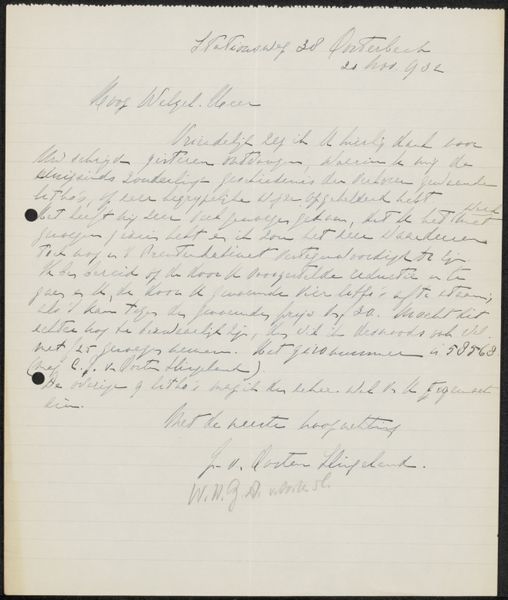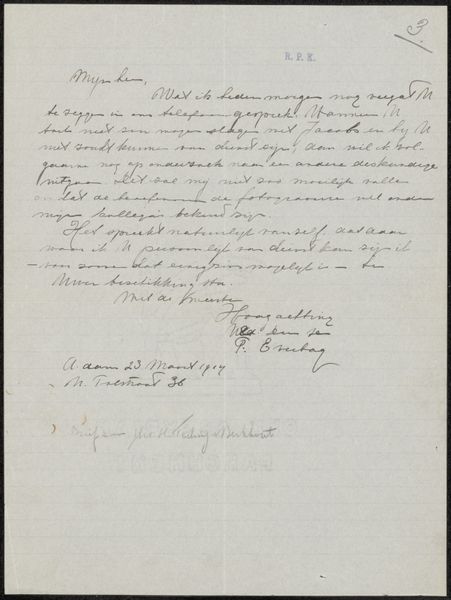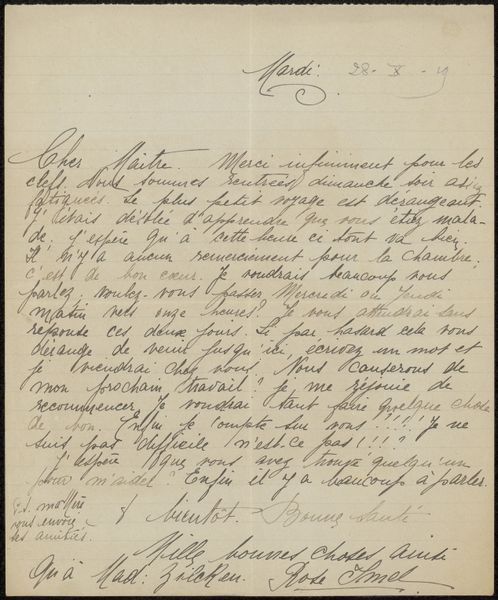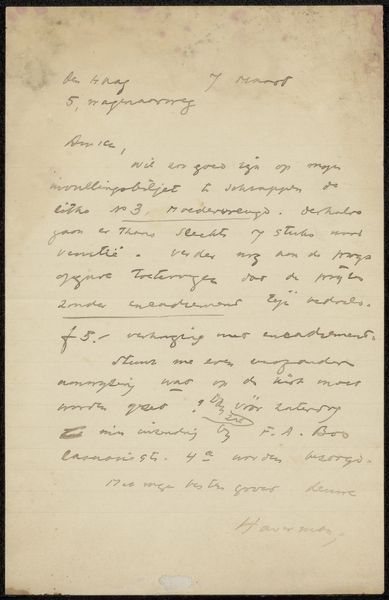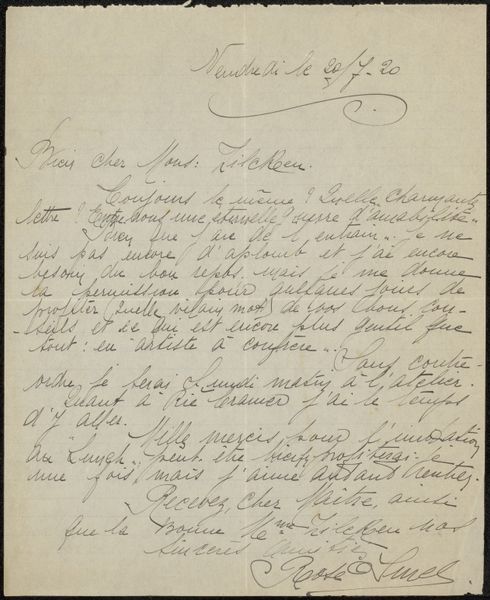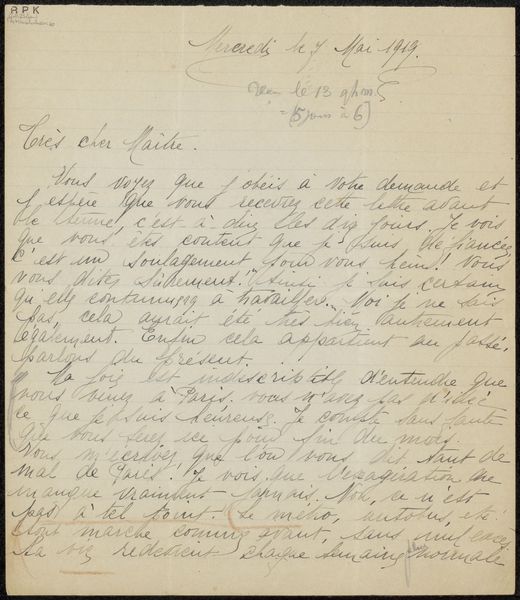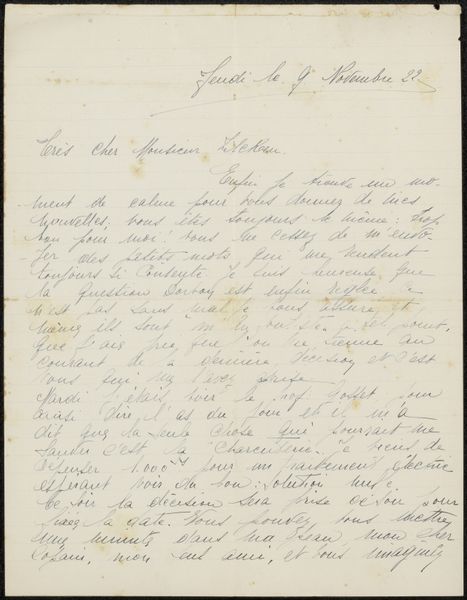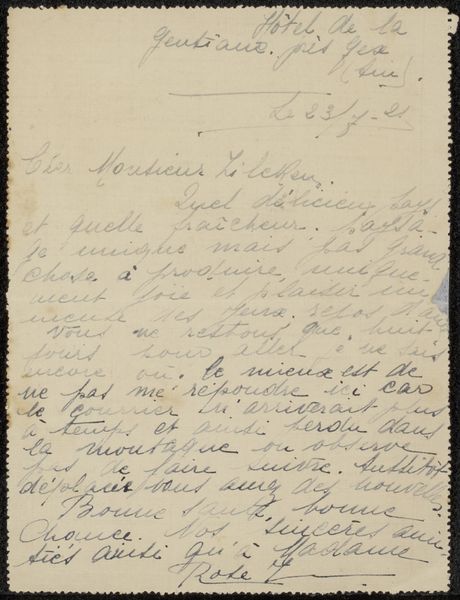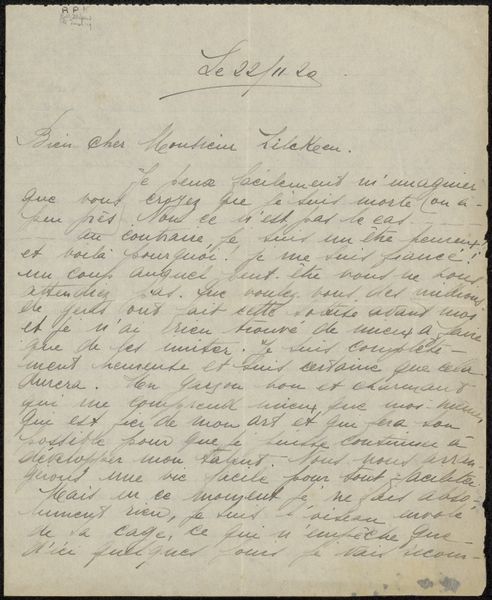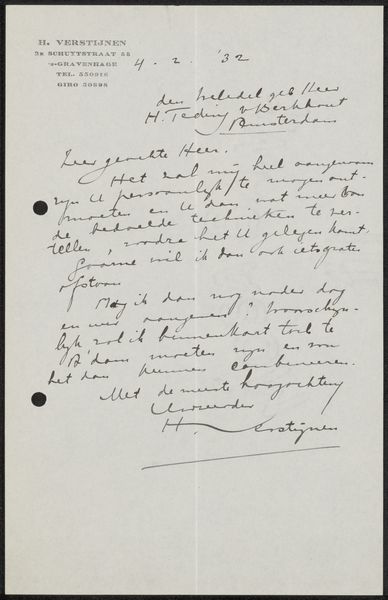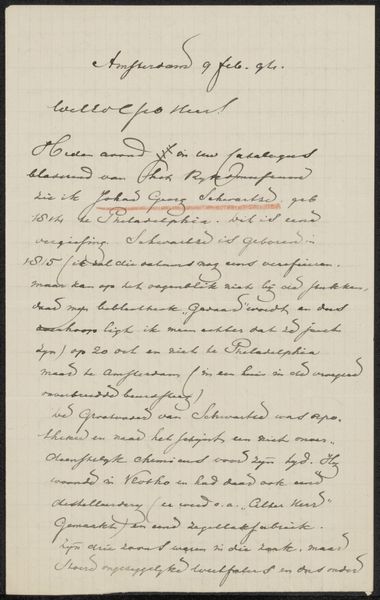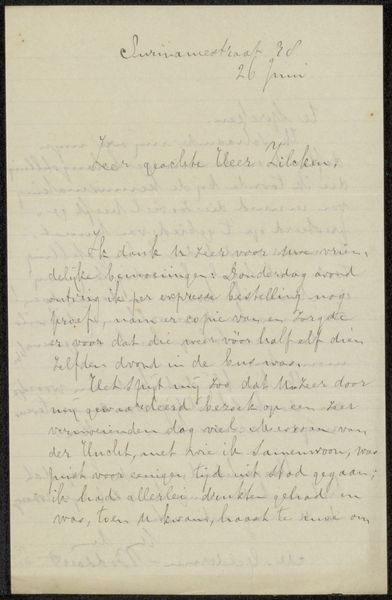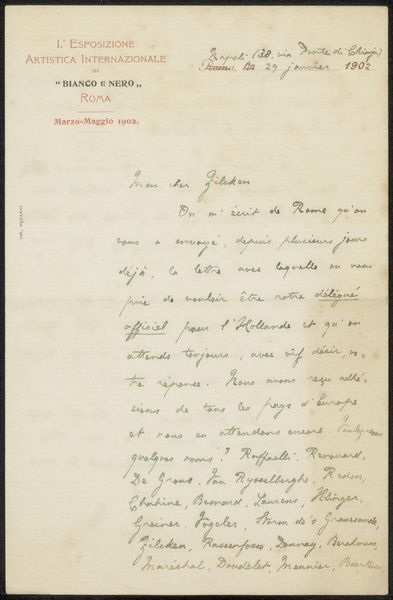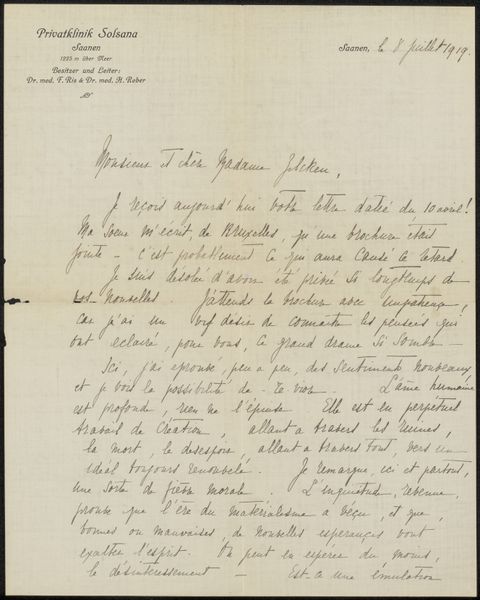
drawing, paper, ink, pen
#
drawing
#
aged paper
#
hand-lettering
#
ink paper printed
#
hand drawn type
#
paper
#
personal sketchbook
#
ink
#
hand-drawn typeface
#
pen work
#
sketchbook drawing
#
pen
#
handwritten font
#
sketchbook art
#
calligraphy
Copyright: Rijks Museum: Open Domain
Editor: Here we have “Brief aan Henriette Wilhelmina van Baak,” possibly from 1939, by Dagmar Frandsen. It’s ink and pen on paper – essentially, a handwritten letter. There’s something very personal and fragile about seeing handwriting, especially one that’s this delicate. What kind of story does the lettering tell you? Curator: This isn't just handwriting; it's a visual encoding of an entire relationship. The *style* of the hand itself tells a story. Look at the flourishes, the almost architectural quality of some strokes—they become symbols of connection, or perhaps even longing, across time and distance. And, crucially, the medium—ink on paper—speaks volumes, invoking a sense of permanence that digital communication lacks. Editor: That's an interesting point. The deliberate act of writing, as opposed to typing… Curator: Exactly. Consider calligraphy—its cultural significance isn’t just in transmitting information but also about artistic expression. This hand-drawn typeface—almost a ‘hand-drawn font,’ as one of the tags suggests—becomes a reflection of the writer’s personality, emotional state, their very *being.* It reflects a certain period of design. Think of the Bauhaus and other explorations of simplified geometry, which feel echoed in that unique symbol at the top left. Do you see how it feels part logo, part talisman? Editor: I see what you mean. It's like the whole letter, from the ink to the symbols, works as an intimate message. Curator: Precisely! It bridges a cultural memory. Even if we can’t decipher the literal meaning without a translation, the image itself becomes an artifact loaded with psychological and cultural weight. Each curve and stroke is a conscious—or unconscious—expression. We look at the emotional archaeology. Editor: I’ve never considered the idea that just the letter style carries so much meaning. That changes everything about how I perceive handwritten documents.
Comments
No comments
Be the first to comment and join the conversation on the ultimate creative platform.
